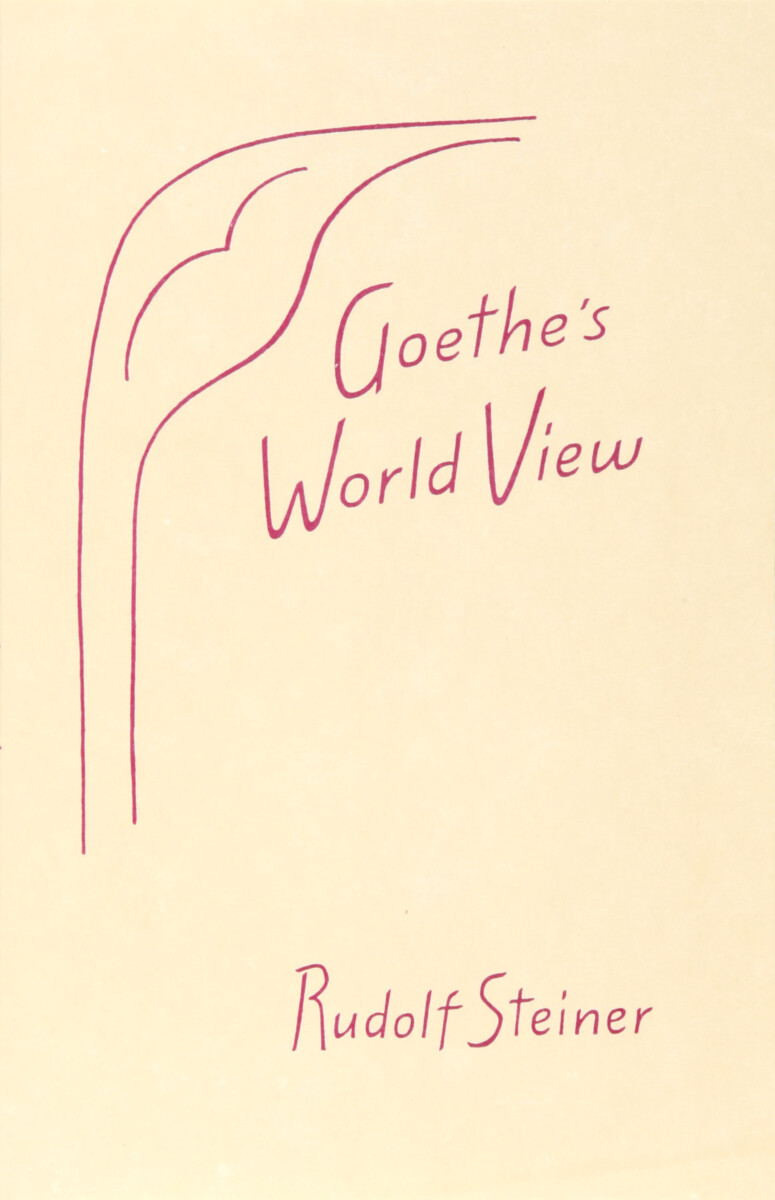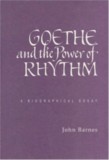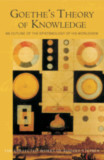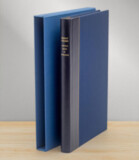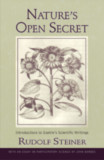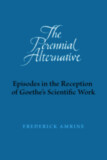- Publisher
Mercury Press - Published
2nd November 1994 - ISBN 9781957569246
- Language English
- Pages 160 pp.
- Size 5.3" x 8"
The thoughts expressed in this book are meant by Rudolf Steiner to contain the fundamental elements that he observed in Goethe's worldview. There was a particular appeal for Steiner in observing what nature reveals of its being and laws as perceived by Goethe's refined organs of sense and spirit. He came to understand how Goethe experienced such revelations as good fortune and happiness so great that he sometimes valued them over his poetic gift.
Rudolf Steiner “lived into” the feelings that passed through Goethe's soul when he said:
“Nothing motivates us so much to think about ourselves as when, after a long interval, we finally see again objects of the highest significance, scenes of nature with particularly decisive characteristics, and compare the impression remaining from the past with the present effect. We will then notice by and large that the object emerges more and more, that, while we earlier experienced joy and suffering in our encounter with the objects and projected our happiness and perplexity onto them, we now, with egoism tamed, grant them their rightful due, which is that we recognize their particularities and learn to value their characteristics more highly by thus living into them. The artistic eye yields the first kind of contemplation; the second kind is suited to the researcher of nature; and I had to count myself, although at first not without pain, still in the end fortunate that, as the first kind of sense threatened to leave me by and by, the second kind developed all the more powerfully in eye and spirit.” — Goethe
This volume is a translation from German of the written work Goethes Weltanschauung (GA 6).
C O N T E N T S:
Preface to the New Edition, 1918
Preface to the First Edition, 1897
Introduction
I. GOETHE'S PLACE IN THE DEVELOPMENT OF WESTERN THOUGHT
Goethe and Schiller
The Platonic World View
The Consequences of the Platonic World View
Goethe and the Platonic World View
Personality and World View
The Metamorphosis of World Phenomena
II. GOETHE'S VIEW ON THE NATURE AND DEVELOPMENT OF LIVING BEINGS
Metamorphosis
III. THE CONTEMPLATION OF THE WORLD OF COLORS
The Phenomena of the World of Colors
IV. THOUGHTS ABOUT THE DEVELOPMENTAL HISTORY OF THE PHENOMENA OF EARTH AND AIR
Thoughts about the Developmental History of the Earth
Observations about Atmospheric Phenomena
V. GOETHE AND HEGEL
Epilogue to the New Edition of 1918
Rudolf Steiner
Rudolf Steiner (b. Rudolf Joseph Lorenz Steiner, 1861–1925) was born in the small village of Kraljevec, Austro-Hungarian Empire (now in Croatia), where he grew up. As a young man, he lived in Weimar and Berlin, where he became a well-published scientific, literary, and philosophical scholar, known especially for his work with Goethe’s scientific writings. Steiner termed his spiritual philosophy anthroposophy, meaning “wisdom of the human being.” As an exceptionally developed seer, he based his work on direct knowledge and perception of spiritual dimensions. He initiated a modern, universal “spiritual science” that is accessible to anyone willing to exercise clear and unbiased thinking. From his spiritual investigations, Steiner provided suggestions for the renewal of numerous activities, including education (general and for special needs), agriculture, medicine, economics, architecture, science, philosophy, Christianity, and the arts. There are currently thousands of schools, clinics, farms, and initiatives in other fields that involve practical work based on the principles Steiner developed. His many published works feature his research into the spiritual nature of human beings, the evolution of the world and humanity, and methods for personal development. He wrote some thirty books and delivered more than six thousand lectures throughout much of Europe. In 1924, Steiner founded the General Anthroposophical Society, which today has branches around the world.


